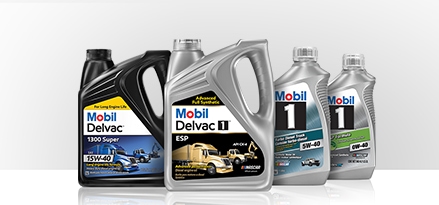Frequently asked questions
Weather FAQs - Engine oils
During the winter, all vehicle lubricants – whether engine oil, transmission oil, differential oil, hydraulic oil or grease – should be considered. Before starting equipment in extremely cold temperatures, an operator should make sure the oils in the engine, transmission and hydraulic system are fluid enough to flow. Check the engine oils using the dipstick where applicable; other fluids should also be checked by their appropriate methods.
While most 15W-40 viscosity grades will satisfy the cold-weather startup temperature requirements in the U.S., engine oil specifications should be referenced to ensure that properties such as pour point, cold cranking viscosity and cold-temperature pumping viscosity meet an engine's coldest operating temperature requirements. Advanced full synthetic Mobil Delvac 1™ engine oils are formulated to provide increased cold-weather startup protection even in severe weather conditions. Additional options that fleets or owner-operators should consider are synthetics like our Mobil Delvac™ Extreme engine oils.
Engines will experience the highest wear during cold startup, as lubrication to bearings and the upper-engine hardware is limited during startup and initial warmup. The engine oil's viscosity at starting temperature is an important factor in determining whether or not an engine will start.
Using too heavy a viscosity during cold temperatures can result in inadequate lubrication during startup.
If the chosen lubricant has a viscosity that is too high, the oil filter bypass valve – assuming the truck has one – will open and allow unfiltered oil to bypass the oil filter (the bypass valve maintains the lubricating oil flow to the engine and prevents an oil filter collapse). The bypass valve will close as the engine oil warms up and thins out. It is equally important to adequately warm up an engine before loading it. The best practice is to idle for a short period and warm up the engine by operating at a low rpm and load condition.
Many truck engines idle for very prolonged periods during cold winter temperature conditions to allow for warm-up and to keep the cab warm. Prolonged idling will reduce engine life and also waste fuel. Engines operate cooler while idling, and during long idle periods in winter's cold temperatures, moisture in the intake air can condense in the engine crankcase and produce corrosive sulfuric acid, which can attack soft bearing alloys. Long idling also contributes to increased soot and combustion contaminants, which will shorten the engine oil's life prematurely and can lead to excessive piston deposits, sludge formation and detrimental viscosity effects.




